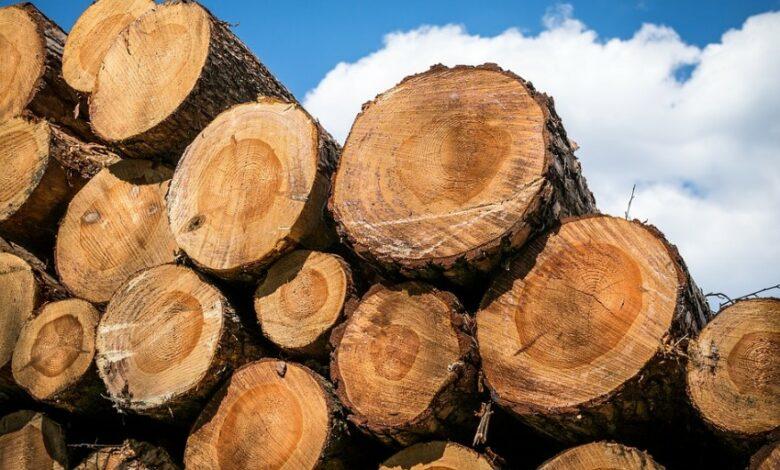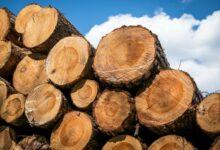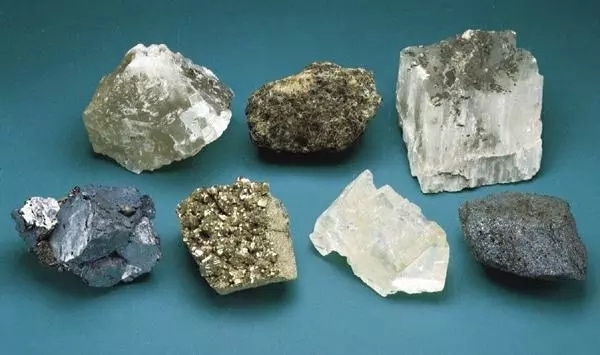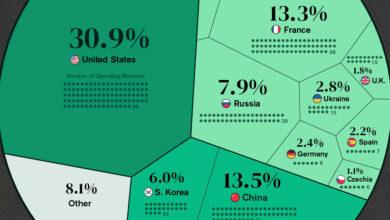
Top 15 Nation with High-value Timber and Forestry Assets
Top 15 Nation with High-value Timber and Forestry Assets – Timber and forestry assets hold immense value in the global economy, serving as renewable resources and providing numerous environmental benefits. In this article, we explore the top 15 nations that possess significant timber and forestry assets. These countries have extensive forested areas and play a crucial role in the timber industry. From Canada’s expansive softwood reserves to Russia’s vast forests and Brazil’s tropical rainforests, each nation contributes to the production and trade of high-value timber products. Sustainable forest management practices and the responsible utilization of these resources are pivotal in ensuring the long-term viability of the timber industry while preserving the ecological integrity of our forests.Top 15 Nation with High-value Timber and Forestry Assets
1. Canada
Canada is renowned for its vast forested areas, covering approximately 347 million hectares. The country’s timber reserves are primarily composed of softwood species like spruce, pine, and fir, making it a significant exporter of lumber, pulp, and paper products. Its sustainable forest management practices have contributed to the long-term viability of its timber industry.
👉 Relocate to Canada Today!
Live, Study and Work in Canada. No Payment is Required! Hurry Now click here to Apply >> Immigrate to CanadaRead Also: Top 15 Nation with valuable Oil and Gas reserves
2. Russia:
As the world’s largest country, Russia boasts immense forest resources spanning over 815 million hectares. Its timber reserves consist of various species, including pine, birch, and larch. Russia is a major exporter of timber products, supplying the global market with sawnwood, plywood, and wood pellets. The country’s vast forests have provided a source of economic development and employment opportunities.
3. United States:
The United States possesses extensive forested land, with forests covering over 310 million hectares. Its timber resources comprise a diverse range of species such as oak, pine, and maple. The U.S. forestry industry is a significant contributor to the country’s economy, providing jobs and producing high-value timber products. The sustainable management of forests in the U.S. has been a focus, ensuring the long-term health and productivity of these resources.Good morning My Love Message
4. Brazil:
With the Amazon rainforest as its prominent feature, Brazil is home to the world’s largest tropical forest resources. Its timber reserves encompass various species like mahogany, teak, and cedar. Brazil’s forestry industry faces challenges related to deforestation and illegal logging, but it remains an important producer and exporter of tropical timber products. Sustainable practices and conservation efforts are vital for preserving the biodiversity and ecological integrity of Brazil’s forests.JAMB portal
Read Also: 15 Best Certified Digital Marketing Training
5. China:
China has vast forested areas, covering approximately 208 million hectares. The country’s timber resources consist of species like pine, fir, and bamboo. China is a significant consumer and producer of timber products, catering to both domestic and international markets. Sustainable forest management practices have gained prominence in China, focusing on ecosystem conservation and improving the efficiency of timber production.
6. Sweden:
Known for its sustainable forest management practices, Sweden boasts approximately 28 million hectares of forests. Its timber reserves primarily comprise coniferous species like spruce and pine. Sweden is a major exporter of sawnwood, pulp, and paper products, valued for their high quality. The country’s forestry industry has placed a strong emphasis on sustainable practices and certification schemes.Romantic love message
7. Finland:
Finland has significant forest resources covering about 23 million hectares. Its timber reserves consist of various coniferous species, including spruce, pine, and birch. Finland’s forestry sector plays a vital role in the economy, with a strong focus on sustainable forest management. The country’s wood processing industry is highly advanced, producing high-value timber products for global markets.
👉 Relocate to Canada Today!
Live, Study and Work in Canada. No Payment is Required! Hurry Now click here to Apply >> Immigrate to Canada8. Indonesia:
Indonesia is known for its rich biodiversity, including vast tropical forests. The country’s timber reserves feature species such as teak, merbau, and ebony. Despite challenges related to deforestation and illegal logging, Indonesia remains a prominent exporter of tropical timber products. Sustainable forest management initiatives have been implemented to mitigate environmental impacts and ensure the sustainable use of forest resources.
Read Also: Top 15 Stain-Resistant Emulsion Paint in Nigeria
9. Norway:
Norway’s forested areas cover around 13 million hectares, primarily consisting of coniferous species like spruce and pine. The country’s forestry industry emphasizes sustainable management practices and produces high-quality timber products for domestic and international markets. Norway’s approach to forest management includes strict regulations and certification systems to promote responsible and environmentally friendly practices.Information guide Nigeria
10. Australia:
Australia possesses diverse forest ecosystems, covering over 147 million hectares. Its timber resources comprise various species such as eucalyptus, pine, and blackwood. The Australian forestry industry focuses on sustainable harvesting practices and supplies both domestic and international markets. The country’s forests also provide essential habitat for unique wildlife species.
11. Democratic Republic of the Congo:
The Democratic Republic of the Congo (DRC) is home to vast tropical forests, covering approximately 152 million hectares. The country’s timber reserves include valuable species like mahogany, ebony, and afrormosia. However, the DRC faces challenges related to illegal logging and governance of its forest resources. Efforts are being made to improve forest management practices and promote sustainable development in the country.NYSC Portal
12. Malaysia:
Malaysia has significant tropical forest resources, covering around 20 million hectares. Its timber reserves feature species like meranti, kapur, and keruing. Malaysia is a major exporter of tropical timber products, supplying the global market with sawnwood, plywood, and furniture. The country has implemented sustainable forest management practices to ensure the long-term viability of its timber industry.
Read Also: Top 15 Biggest Tech Companies in Nigeria
13. India:
India possesses diverse forest ecosystems, covering approximately 77 million hectares. The country’s timber resources comprise species such as teak, sal, and sandalwood. India’s forestry sector focuses on sustainable management practices and caters to both domestic and international demand. The country has implemented reforestation programs and initiatives to enhance forest conservation efforts.
14. Japan:
Despite its limited land area, Japan has valuable timber resources covering around 24 million hectares. The country’s timber reserves consist of species like cedar, cypress, and hinoki. Japan’s forestry industry emphasizes sustainable practices and produces high-quality timber products for various applications. The country has a long history of utilizing timber in traditional architecture and craftsmanship.
15. Mexico:
Mexico has diverse forest ecosystems, covering approximately 65 million hectares. Its timber resources comprise species such as pine, oak, and mahogany. Mexico’s forestry industry contributes to the national economy through timber production, furniture manufacturing, and other wood-based products. The country’s forest management efforts focus on balancing economic development with ecological conservation.
Read Also: Top 15 Best Software Development Companies in Nigeria
Conclusion:
These top 15 nations possess extensive timber and forestry assets, playing a crucial role in the global timber industry. From the vast forests of Canada and Russia to the tropical resources of Brazil and Indonesia, these countries contribute significantly to the sustainable production and trade of high-value timber products. Sustainable forest management practices and responsible utilization of these resources are essential for maintaining the long-term viability of the timber industry while preserving the environmental and social benefits provided by forests. Continued efforts to combat illegal logging, promote sustainable practices, and protect forest ecosystems are vital for the future of the global timber industry.
Check: JAMB Result
Check and Confirm: How much is Dollar to Naira today






